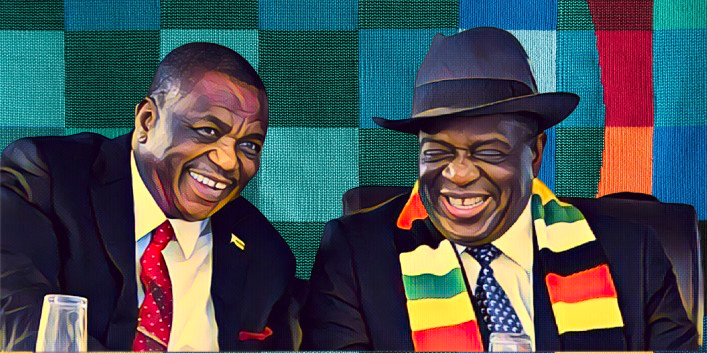KEY POINTS
- Factional conflicts within Zanu PF are becoming more intense because to economic hardships and corruption.
- The goal of Vice President Chiwenga’s team is to remove President Mnangagwa and his supporters.
- DCCs receive a strong warning from National Political Commissar Machacha not to engage in polarizing actions.
The continuing Zanu PF factional conflicts have become more intense as several factions line up to seize power or remove incumbents before their terms are up.
Growing public anger has resulted from economic issues, corruption, and the rapid devaluation of the Zimbabwe Gold (ZiG) currency versus the US dollar, which have intensified tensions within the ruling party.
Chiwenga’s camp goes after Mnangagwa
The goal of Vice President Constantino Chiwenga’s team is to overthrow President Emmerson Mnangagwa and his allies. The organization is pushing for Mnangagwa’s removal, citing the economy’s struggles and pervasive corruption as justifications.
When Munyaradzi Machacha, the National Political Commissar of Zanu PF, warned District Coordinating Committees (DCCs) not to fanne dissension within the party, tensions were apparent.
The letter, dated October 2, detailed the factional strategies used by party members to discredit one another and was addressed to all provincial chairpersons of Zanu PF. Machacha claims that certain DCC members have taken on the role of “kingmakers,” which is evocative of the previous DCCs that were disbanded because of internal factionalism.
Additionally, Machacha pointed out that certain DCC members have been going beyond their authority in making executive decisions, which is against the party’s constitution’s Article 13, Section 154.
According to New Zimbabwe, the power battle has intensified as a result of these acts, with some members purposefully keeping others out of meetings and making choices that marginalize opponents.
Machacha demands harmony
Machacha took issue with several DCC members’ behavior in his letter, especially with those who were running for parliamentary and other positions ahead of the election season.
He underlined that disruptive activity had to end right once, including early campaigning and denigrating National Assembly members who are currently in office.
“DCCs need to stop acting in such a reactive manner. Machacha issued a warning: “Going forward, the party will take severe measures against perpetrators through severe disciplinary actions.”
Eight years after their original dissolution, the DCCs were resurrected in 2020 with the goal of bolstering grassroots structures. However, their reappearance has fostered factional battles instead. By scheduling meetings at inconvenient times, some members sideline others and use DCC sessions as a forum to advance their agendas.
Internal power struggles throughout history
The internal power balance was altered at the time of the previous dissolution of the DCCs, which observers perceived as favoring then-Vice President Joice Mujuru over Mnangagwa. The direction that Zanu PF leadership ultimately took was greatly influenced by this internal conflict.
Political analysts contend that the conflict between Mujuru and Mnangagwa exposed the concentration of power within Zanu PF, where key decision-making positions are held by party organizations such as the Central Committee and Politburo.
These same power dynamics can be seen in the ongoing conflict between Chiwenga and Mnangagwa, as both sides vie for dominance in the party’s leadership.
Zanu PF’s unity is still in jeopardy due to the factional strife and the party’s waning public support and economic hardship. The party’s capacity to stay together and run Zimbabwe may be impacted by the current unrest as future elections draw near.


